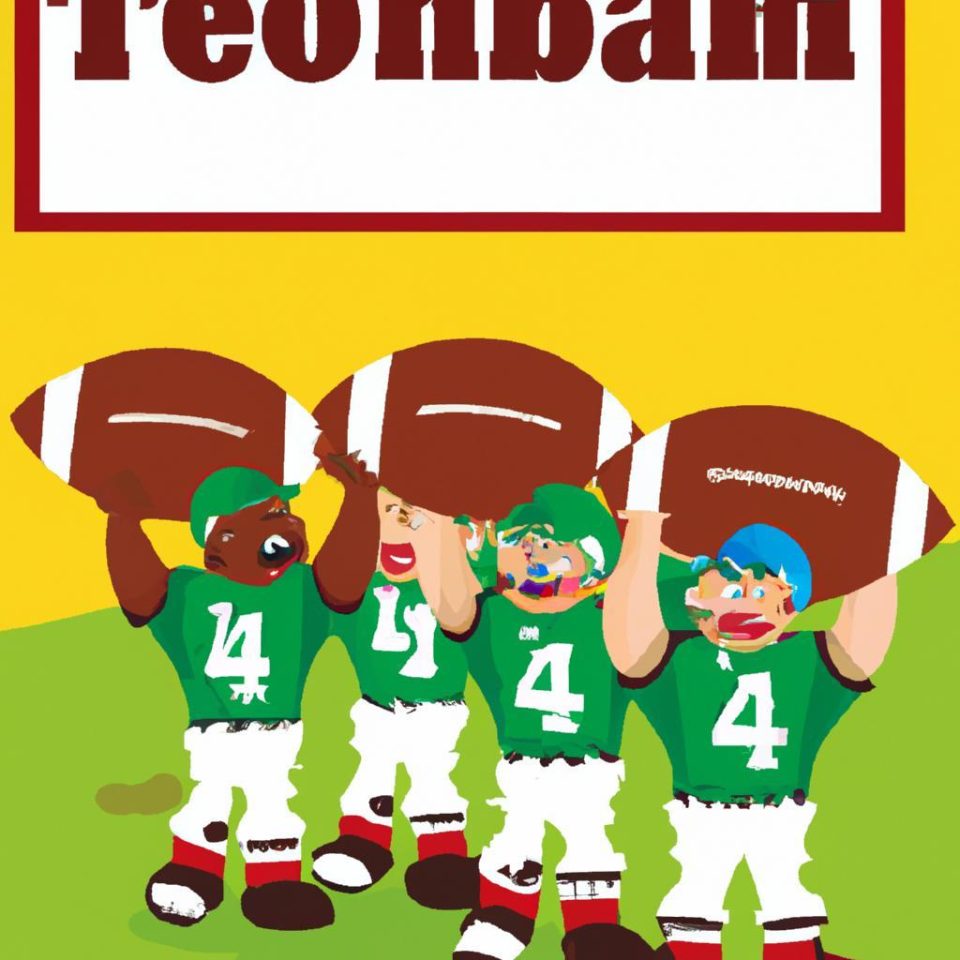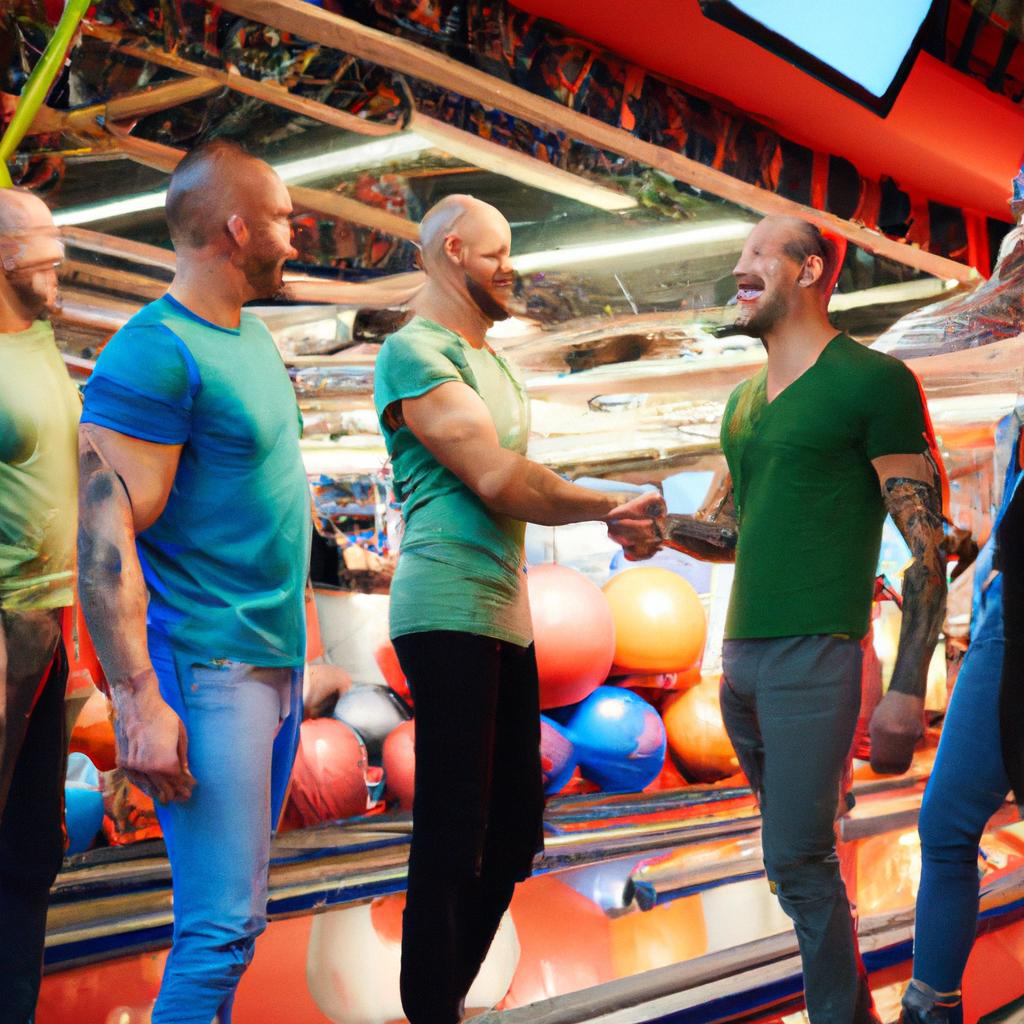United on the Field: How Team Sports Forge Lasting Camaraderie and Teamwork Skills

In a world often characterized by individuality and personal achievement, team sports stand as a testament to the power of collaboration and unity. “United on the Field” delves into the heart of what it means to engage in sports with others, exploring how the shared experience of striving for a common goal fosters not only athletic prowess but also lasting bonds of friendship and teamwork skills. From the exhilarating moments of celebration after a hard-fought victory to the challenges faced in defeat, the field becomes a crucible where camaraderie is forged. As we unpack the myriad ways in which participating in team sports enriches our lives, we will uncover the invaluable lessons learned both on and off the playing surface—lessons that extend far beyond the scoreboard. Join us as we explore the profound connections formed in the heat of competition and the enduring impact these experiences have on our social fabric.
Nurturing Bonds Through Shared Goals and Challenges
In the world of team sports, athletes come together with a common objective, establishing a foundation for relationships built on collaboration and mutual support. Through practices, games, and shared victories or defeats, each member learns the importance of contribution and accountability. These experiences often include:
- Collaborative Problem-Solving: Players must strategize together, fostering communication skills that extend beyond the field.
- Emotional Resilience: Facing challenges as a unit strengthens individual and collective coping mechanisms, enhancing emotional bonds.
- Shared Triumphs: Celebrating victories, no matter how small, cultivates a sense of belonging, reinforcing friendships rooted in accomplishment.
The challenges encountered in team environments serve not only to boost skills but also to deepen connections among team members. Each obstacle faced can become a story of perseverance, further solidifying friendships. The dynamics of teamwork can be encapsulated in a simple table, highlighting the various areas where bonds grow stronger:
| Aspect | Impact on Bonds |
|---|---|
| Shared Risk | Fosters trust as team members rely on one another. |
| Collective Goals | Encourages teamwork, uniting players towards a common vision. |
| Shared Learning | Heightens respect for each member’s strengths and skills. |

Fostering Communication and Trust Among Teammates
Effective communication is the cornerstone of any successful team, and in the heat of competition, the need for clear dialogue becomes even more pronounced. On the field, teammates rely on visual and verbal cues to coordinate their efforts, creating an atmosphere where **honesty** and **openness** are vital. The exhilarating rush of a well-executed play is not just a testament to individual talent but a reflection of shared understanding and collaborative effort. Regular practice sessions provide opportunities to develop these communication skills, as players learn to articulate strategies, share feedback, and fine-tune their interactions, nurturing a profound sense of trust.
Building this trust among teammates enables them to take risks, offer help, and support each other during challenges. Following are key elements that further strengthen this bond:
- Active Listening: Being attentive to teammates’ ideas fosters respect and understanding.
- Positive Reinforcement: Encouraging words can boost confidence and morale, crucial for performance.
- Conflict Resolution: Addressing disagreements constructively can enhance relationships and minimize misunderstandings.
To visualize how these elements contribute to trust and communication, consider the following table, which summarizes the impact of various communication styles in a sports context:
| Style | Impact |
|---|---|
| Verbal Communication | Increases clarity and direction during plays. |
| Non-Verbal Cues | Enhances intuitive understanding of teammates’ intentions. |
| Feedback Loops | Encourages continuous improvement and adaptation among players. |

Building Lifelong Skills: Lessons from the Playground to the Workplace
When we step onto the field, the lessons learned stretch far beyond just the game. **Team sports** cultivate an environment where individuals learn to collaborate, communicate, and adapt to dynamic situations. Each pass, play, and strategy requires players to develop an acute awareness of their teammates’ strengths and weaknesses, much like in a professional setting. Key attributes such as **trust, responsibility**, and **leadership** flourish as players learn that each person’s contribution is vital to the team’s success, mirroring the interdependence found in any workplace. The friendships formed during these experiences often echo throughout a person’s career, leading to enduring relationships that enhance collaboration and drive results.
The exploration of teamwork on the field also nurtures essential skills that transfer seamlessly into our professional lives. Through practice and competition, athletes face challenges that foster resilience and problem-solving capabilities. For example, they learn to:
- Accept Feedback: Constructive criticism from coaches and teammates helps refine skills and build a growth mindset.
- Embrace Diversity: Working with people from different backgrounds enriches perspectives and fosters creativity.
- Celebrate Success and Failure: Each victory and setback provides valuable lessons in humility and perseverance.
These foundational experiences in team sports form a rich tapestry of soft skills that are essential in the modern workplace. Understanding how to navigate group dynamics, communicate effectively, and engage with a diverse set of individuals ensures that those who have participated in team sports are often primed for leadership roles in professional environments. Here’s a brief overview highlighting the skills earned through team gameplay:
| Skill Developed | Translational Workplace Application |
|---|---|
| Communication | Clear and concise interactions with colleagues and supervisors. |
| Conflict Resolution | Ability to address disagreements and find amicable solutions. |
| Team Cohesion | Strengthening collaboration to achieve common goals. |
| Adaptability | Adjusting strategies based on evolving circumstances in projects. |
Final Thoughts
In the vibrant tapestry of human experience, few threads are as strong as those woven by the spirit of teamwork in sports. “United on the Field” reveals how the shared challenges and triumphs of team sports nurture deep connections and invaluable skills that transcend the boundaries of the playing field. As athletes come together to strategize, support, and celebrate, they not only hone their physical abilities but also forge bonds of camaraderie that can last a lifetime.
Whether it’s the thrill of a last-minute goal or the quiet victories in practice, these moments shape individuals into cohesive units, preparing them for the collaborative demands of life beyond sports. As we reflect on the lessons learned and friendships formed, we are reminded that the essence of teamwork is about much more than winning; it’s about growing together, understanding one another, and building a legacy of solidarity that endures.
So let us carry the lessons of the field into our daily lives, championing the values of cooperation, respect, and unity as we tackle our own challenges outside of sports. it’s not just about what we achieve together on the field, but how those achievements ripple through our communities, creating a world where teamwork reigns supreme.





